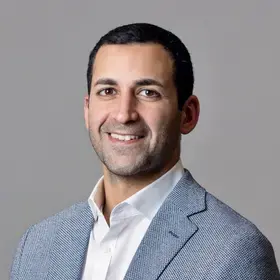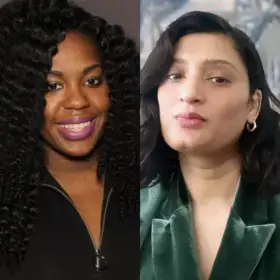Around the time of the financial crisis, Sammy Chowdhury made an unexpected career choice – he quit his job. No longer at British Telecom, he decided to start his own venture. In 2009, he co-founded enableIT, a consultancy that provides technology services to financial clients. A few years after he started the business, he was ready to grow: "I really didn't know where to go from there. I needed mentoring."
Sammy discovered Columbia's M.S. program in Information and Knowledge Strategy (IKNS). Unlike an M.B.A. program, the IKNS curriculum would help him develop a company that would be "more collaborative," he says. Plus, IKNS would provide the mentorship that he needed in order to take his business to the next level.
As expected, the IKNS program did more than expand his network and confer knowledge management best practices. It introduced him to a community of practice that includes his Columbia peers, instructors, and industry leaders who continue to offer each other advice and support.
He says of his cohort's evolution during the program, "We were in it for ourselves; now we're in it for the entire community."
We spoke with Sammy and asked him about his experiences with the IKNS program.
What attracted you to the IKNS program?
A couple of years after I started my business enableIT, I realized that I really didn't know where to go from there. I needed mentoring.
When I started thinking about where to go, my business partner suggested that I go to Columbia to get an M.B.A. But the traditional M.B.A. curriculum is set up in silos. Rather, I wanted a program that would help me develop a company that would be more collaborative.
While looking for different programs at Columbia, I heard about IKNS. I requested a meeting with Dennis Green and Kate Pugh, and I attended a class that Guy St. Clair was teaching. I applied, got accepted, and I never looked back.
So far, what have been the highlights of the program for you?
I'm glad that we focus on collaboration and information management. In professional services, we don't sell any products, right? It's all about people. But it's very difficult to solve problems that are people-related. It turns out that there are frameworks that you can apply, and I didn't know that they existed until I began the IKNS program.
That's what has been valuable to me: the frameworks, tools, case studies, and best practices. They are easily transferable to what I do, building high-performance teams.
I'm curious how you're applying your IKNS knowledge to your business and your career.
I have an information systems background; I came from the technology world. I was always trying to use technology to address any problem that I ran into. But due to what I learned in IKNS, I now approach problems very differently. I look at them as knowledge gaps, which has changed the kinds of solutions that I offer and allowed me to expand my business.
For instance, we expanded our business to the West Coast and beyond. And, as we were doing that, I asked myself, "What were our knowledge gaps?" Well, I needed to understand the clients, the local regulations, the kinds of employees I could hire, and the skill sets that were available. So IKNS enhanced my ability to strategize and helped me as I expanded my business.
You were working on your own venture while you were doing IKNS. I wonder how you were able to balance work and school?
It was very difficult to balance business, family, and school, but my colleagues, instructors, and class facilitators have all helped me during grad school.
You typically have to seek out alumni on your own through LinkedIn and other social networks. That can take a lot of time. But for IKNS, we have our own social network built on the Ning platform. This community support really helped me tackle these work/life challenges.
It's never easy to balance so many different priorities, but there is a support system here that works.
Was there anything you wanted to share about the program that I didn't already ask about?
One thing I wanted to add – our academic director, Kate Pugh, and the role that she plays is vital to the success of the students. We students changed as a result of this program. We now have a very different set of values. We're much more collaborative, much more inclusive than we were before. We were in it for ourselves, now we're in it for the entire community.


